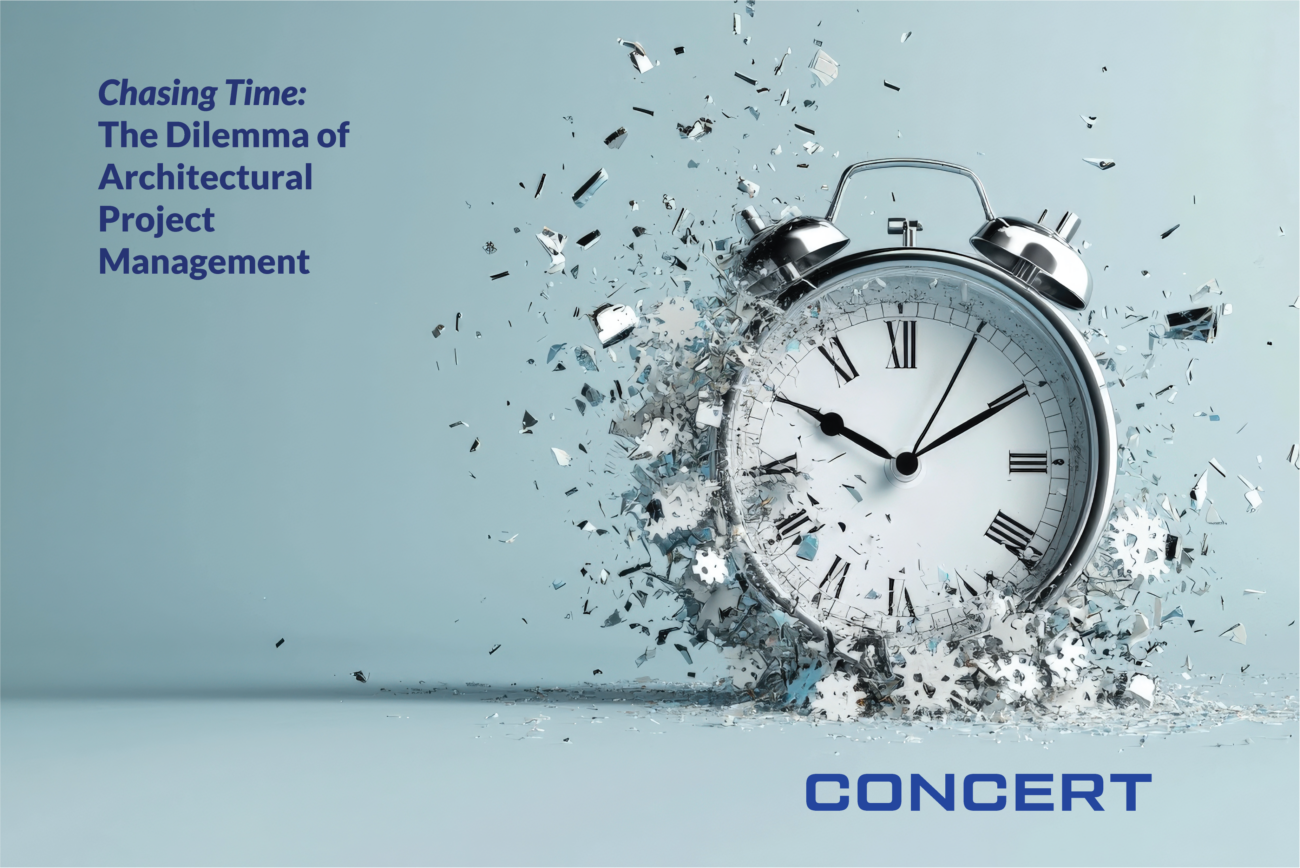by Adam Wilbrecht – Concert CPO
Digitalization has been transforming industries worldwide, but the architecture and construction industry has lagged behind. Despite the numerous benefits that digitalization could bring, its adoption has been slow, and the industry still relies heavily on manual processes and traditional techniques.
In 2020, the American Institute of Architects (AIA) commissioned the Technology Impacting Practice (TIP) study to create a report for its members that presents a roadmap and framework for digital transformation. Published in 2022, the report not only confirms that Architects are well behind the digitalization curve but that digitalization itself exhibits an existential threat that must be addressed.
“The Institute, professional, and the AEC industry are at the tipping point of change where digital transformation and automation will limit the relevance of the architect’s role in society and in the design and construction industries.”
Additionally, the TIP study found that the “willful ignorance” of technological innovation in other industries has positioned architecture at the bottom of the digital maturity curve. The study further concluded that the perpetuation of this position has the very real potential to leave Architect’s irrelevant in the marketplace and unable to advance the strategic goals of the AIA in general.
The study recommends developing an Overall Strategy, Launch a Framework for Digital Transformation, and Develop Standards for Digital Transformation. The conclusions reached in each of these areas is intended to maintain the relevance of Architects as a profession and their leadership role in shaping the built environment.
Concert advocates for change in the architectural industry by creating a platform for authorizing and validating architectural data. Concert’s advocacy aligns with the following five recommendations proposed by the committee:
- De-silo groups such as the AIA Technology in Practice (TAP) knowledge community and embrace outside technology specialists to fully integrate technological knowledge with architectural process.
- Leverage technology not only for the purposes of productivity and profitability but also innovate with service models that add new value propositions for clients, communities and consumers.
- Empower small firms to adopt technology more readily and effectively to enable comprehensive capabilities across the profession.
- Focus on the value of data, its interoperability, and protection as intellectual property (IP)
- Integrate and overlay digital products with AIA Contract Documents (ACD) which should include the new Digital Documents released in 2022.
The architecture and construction industry has fallen behind in adopting digitalization, leading to significant challenges in terms of productivity, efficiency, and relevance in an evolving marketplace. The sector has the potential to benefit significantly from digitalization if the challenges of standardization and resistance to change can be overcome.
The reality is simple. The industry needs to embrace digitalization, and companies that take an immediate proactive approach to digitize their practice will be better positioned to thrive in the future.





